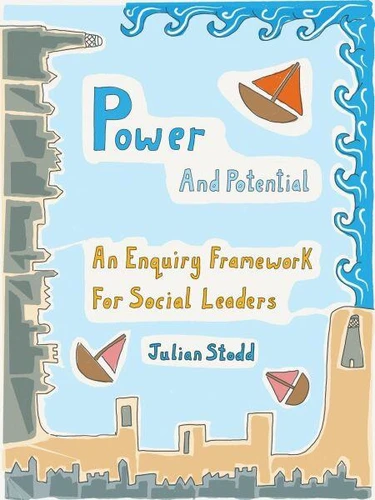Power and Potential. Social Leadership Guidebooks
Par :Formats :
Disponible dans votre compte client Decitre ou Furet du Nord dès validation de votre commande. Le format ePub est :
- Compatible avec une lecture sur My Vivlio (smartphone, tablette, ordinateur)
- Compatible avec une lecture sur liseuses Vivlio
- Pour les liseuses autres que Vivlio, vous devez utiliser le logiciel Adobe Digital Edition. Non compatible avec la lecture sur les liseuses Kindle, Remarkable et Sony
 , qui est-ce ?
, qui est-ce ?Notre partenaire de plateforme de lecture numérique où vous retrouverez l'ensemble de vos ebooks gratuitement
Pour en savoir plus sur nos ebooks, consultez notre aide en ligne ici
- FormatePub
- ISBN978-1-8380196-7-9
- EAN9781838019679
- Date de parution17/04/2023
- Protection num.pas de protection
- Infos supplémentairesepub
- ÉditeurJulian Stodd
Résumé
This book is not an instruction manual, nor an answer. It's an Enquiry Framework: a set of related questions that provide scaffolding - or form a space - for us to explore the nature, operation, and shape of our power. To be a leader is to hold power, but the type of power that you hold, and where you hold it, is not set in stone. Some power may be held structurally, within the hierarchy, given to you by the Organisation you work for, and arranged into rules, systems, process, and mechanisms of consequence and control.
Other types of power are unwritten, held within our reputation in the community, or through the influence, or coer- cion, that comes from seniority or expertise, stories, or beliefs. Power is complex: it is not a one-dimensional force, but a multidimensional one. Sometimes the different forms of power that we hold in these different dimensions can operate against one another, while at other times they can be mutually exclusive.
For example, you may fail to be authentic in your own beliefs and concurrently obedient within a formal system.
Other types of power are unwritten, held within our reputation in the community, or through the influence, or coer- cion, that comes from seniority or expertise, stories, or beliefs. Power is complex: it is not a one-dimensional force, but a multidimensional one. Sometimes the different forms of power that we hold in these different dimensions can operate against one another, while at other times they can be mutually exclusive.
For example, you may fail to be authentic in your own beliefs and concurrently obedient within a formal system.
This book is not an instruction manual, nor an answer. It's an Enquiry Framework: a set of related questions that provide scaffolding - or form a space - for us to explore the nature, operation, and shape of our power. To be a leader is to hold power, but the type of power that you hold, and where you hold it, is not set in stone. Some power may be held structurally, within the hierarchy, given to you by the Organisation you work for, and arranged into rules, systems, process, and mechanisms of consequence and control.
Other types of power are unwritten, held within our reputation in the community, or through the influence, or coer- cion, that comes from seniority or expertise, stories, or beliefs. Power is complex: it is not a one-dimensional force, but a multidimensional one. Sometimes the different forms of power that we hold in these different dimensions can operate against one another, while at other times they can be mutually exclusive.
For example, you may fail to be authentic in your own beliefs and concurrently obedient within a formal system.
Other types of power are unwritten, held within our reputation in the community, or through the influence, or coer- cion, that comes from seniority or expertise, stories, or beliefs. Power is complex: it is not a one-dimensional force, but a multidimensional one. Sometimes the different forms of power that we hold in these different dimensions can operate against one another, while at other times they can be mutually exclusive.
For example, you may fail to be authentic in your own beliefs and concurrently obedient within a formal system.










